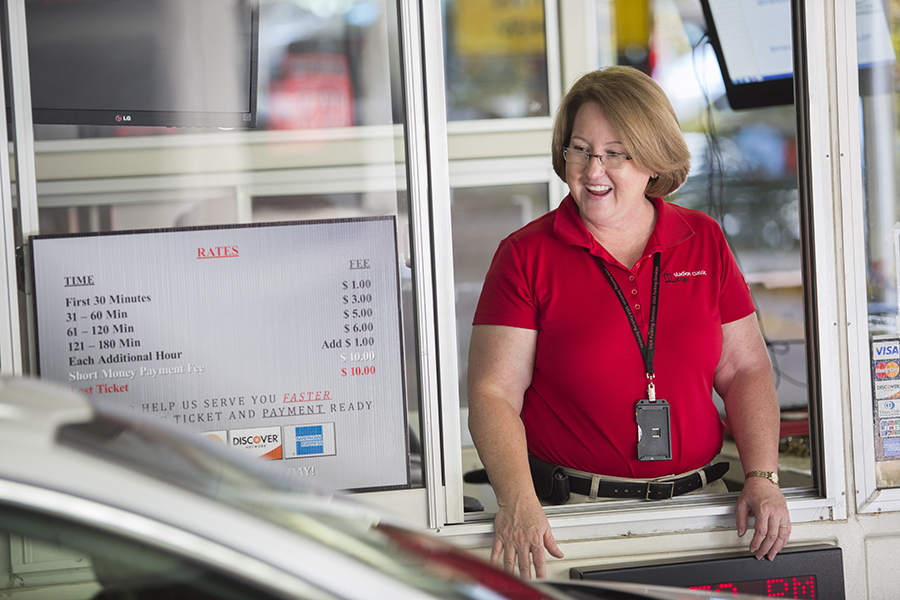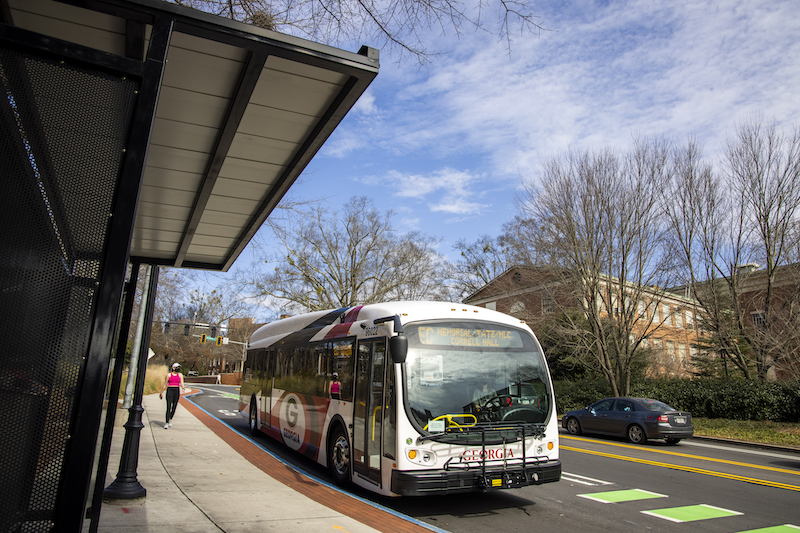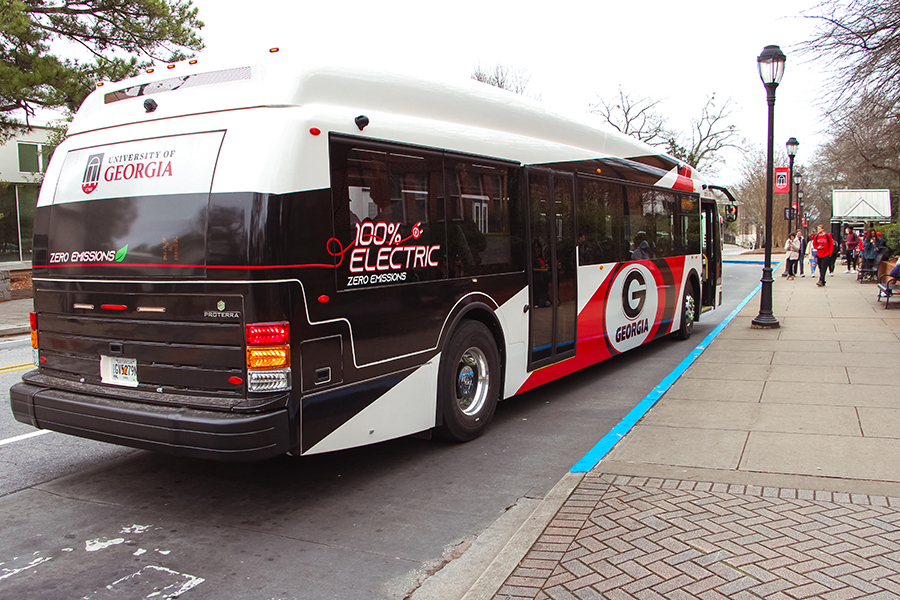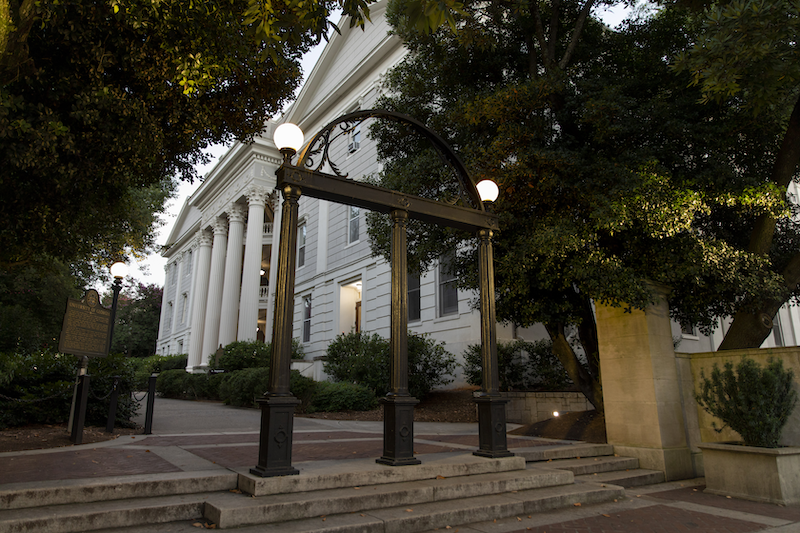Transportation and Parking Services provides bus and paratransit services, alternative transportation, and parking services for the UGA campus.
UGA Bus Service
Approximately 3.5 million passenger trips are operated by the UGA bus service each year.
Riding the bus is one of the best ways to get around campus. The system carries a greater volume of passengers than any other University transit system in the United States. Campus Transit provides bus and paratransit services to the UGA campus. Weekday, night, and weekend routes are available to all UGA community members. Keeping track of the next available bus is easy through UGA’s mobile app available on Apple and Android devices.
Learn more about campus transit
UGA Parking Services
Nearly 21,000 parking spaces are managed on campus. 40,000 drivers are accommodated daily.
Transportation and Parking Services offers online permit registration for students, faculty, and staff. Hourly parking is available in a number of decks on campus and pay lots. Electric vehicle charging stations are available in the North, South, East Campus, STEM, and Hull St. decks.
Learn more about parking on campus






